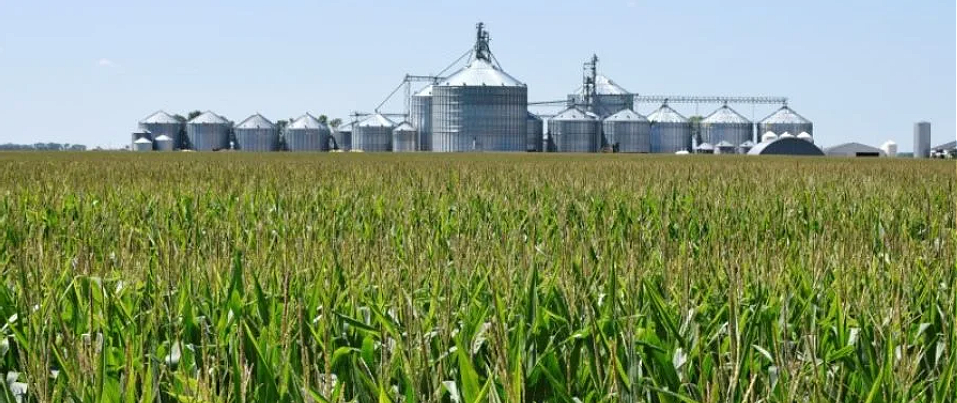Powering the Future: Brazil's Clean Energy Revolution
Powering the Future: Brazil's Clean Energy Revolution. As the world grapples with securing renewable and sustainable energy sources, Brazil is emerging as a significant clean energy powerhouse.
NEWS
Everton Faustino
5/16/20253 min read


Powering the Future: Brazil's Clean Energy Revolution
Keywords: Brazil renewable energy, clean energy, sustainable energy, ethanol, solar power, wind power, biofuels, green hydrogen, energy transition, climate change.
As the world grapples with securing renewable and sustainable energy sources, Brazil is emerging as a significant clean energy powerhouse. Boasting an energy mix that combines hydro, wind, solar, and biomass, alongside its pioneering role in biofuels, the nation is rapidly moving towards energy self-sufficiency and solidifying its position as a major exporter of clean energy.
The Strength of Brazil's Energy Matrix
Unlike many nations still reliant on fossil fuels, Brazil has renewable energy as the backbone of its power supply. According to data from the Energy Research Company (EPE), approximately 80% of the country's electricity comes from renewable sources, significantly higher than the global average. This impressive figure is largely attributed to historical investments in hydroelectric power plants, which have supplied the majority of the national territory for decades.
However, recent years have witnessed the rise of new technological frontiers. Solar energy is rapidly gaining ground, driven by decreasing production costs and increased adoption by residential and commercial consumers. Wind power, meanwhile, already accounts for over 10% of the national electricity matrix, with wind farms scattered across the Northeast region, where consistent winds ensure efficient and sustainable production.
Biofuels: Brazil's Winning Card
No country has invested as heavily in ethanol as Brazil. From the National Alcohol Program (Proálcool) launched in the 1970s to the current generation of advanced biofuels, Brazil has distinguished itself through its ability to transform biomass into high-efficiency fuel.
Sugarcane ethanol, in addition to reducing dependence on petroleum, is considered a cleaner alternative, as its production and use generate fewer carbon emissions than fossil fuels. With technological advancements, Brazil has also begun to explore biodiesel, produced from vegetable oils, which can replace traditional diesel, especially in freight transport and the agricultural sector.
Jatropha: A Biofuel Lost in Time?
During the military government era, agricultural and economic policies were directed towards crops considered more strategic and productive, leading to a decline in jatropha production. Despite being a promising source for biofuels, jatropha cultivation was marginalized due to government incentives focused on the expansion of soy and coffee, which guaranteed higher financial returns and a more consolidated production chain. Additionally, there were concerns regarding the mechanization of jatropha planting and harvesting, which, at the time, was considered less efficient compared to other crops. As a result, the country missed an energy alternative that could have further expanded its leadership in sustainable biofuel production.
Ethanol and Hydrogen Engines: Myth or Fact?
The integration of ethanol and hydrogen engines is not a myth but a developing technology with the potential to revolutionize the transportation sector. In Brazil, researchers at the University of São Paulo (USP) and companies like Shell and Toyota are investing in producing hydrogen from ethanol, creating a viable alternative to fuel cell vehicles.
The process involves converting ethanol into hydrogen through chemical reforming, allowing the fuel to be used in electric motors without relying on water electrolysis, which is more expensive and energy-intensive. Furthermore, this approach leverages Brazil's existing ethanol distribution infrastructure, making the transition to hydrogen more accessible and efficient.
With ongoing tests and increasing investments, Brazil could become a pioneer in the integration of ethanol and hydrogen, solidifying its position as a clean energy benchmark.
Investments Securing the Future
To consolidate its energy leadership, Brazil needs to continue investing in innovation and infrastructure. Companies and governments are betting on green hydrogen production, an alternative that could become one of the primary energy sources of the future. This type of hydrogen is produced through water electrolysis using renewable energy, generating zero carbon emissions.
Furthermore, advancements in energy transmission and storage are crucial for optimizing distribution and ensuring that remote regions can benefit from clean and efficient sources. With appropriate policies and incentives for the private sector, Brazil can become a major exporter of renewable energy, meeting the global demand for sustainable solutions.
Conclusion
Brazil possesses abundant natural resources, consolidated infrastructure, and the technology to be a key pillar of sustainable energy worldwide. While other nations are still seeking viable alternatives to abandon fossil fuels, Brazil is already showing the way forward. With continuous investments and policies that drive innovation, Brazil not only ensures its self-sufficiency but also positions itself as one of the major global suppliers of clean energy.


Type the words below into the Unveiled Brazil search engine to learn more:
AGRICULTURE
EMBRAPA
ENERGY
